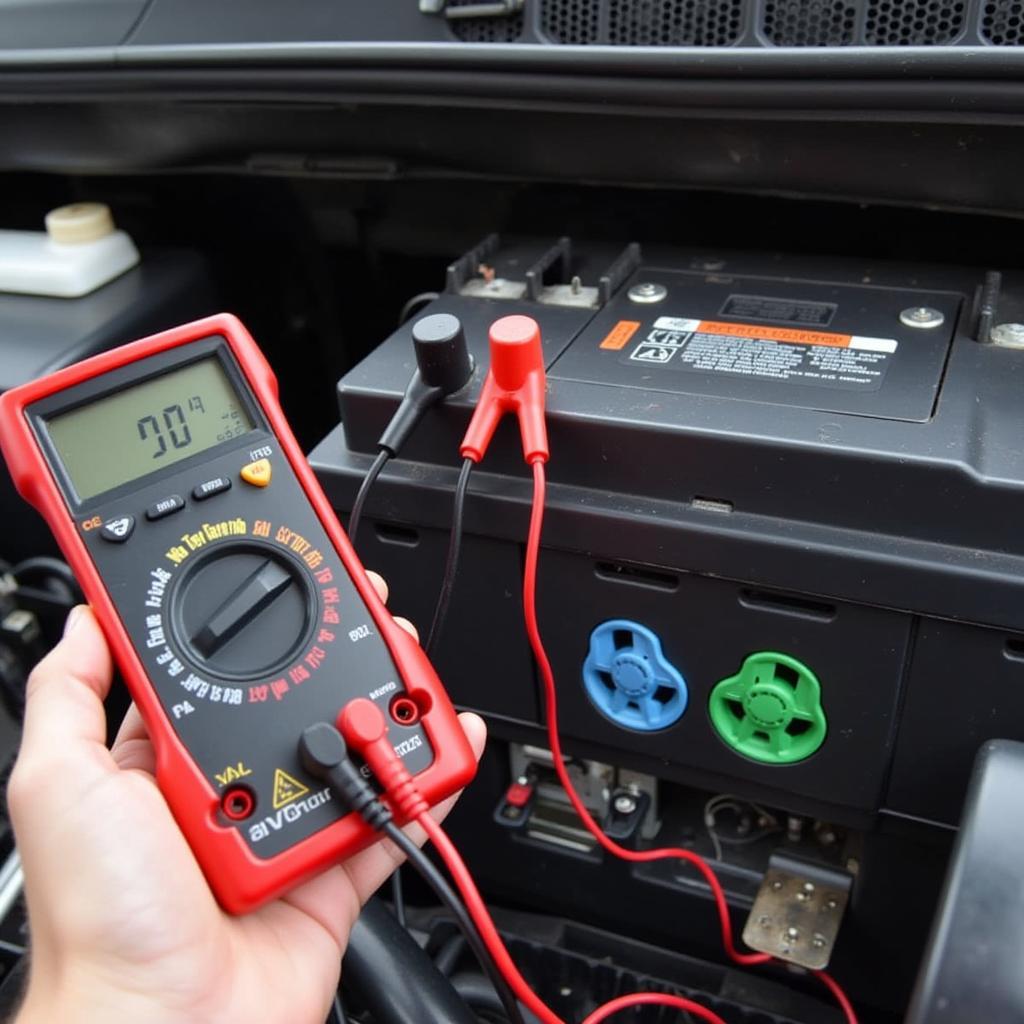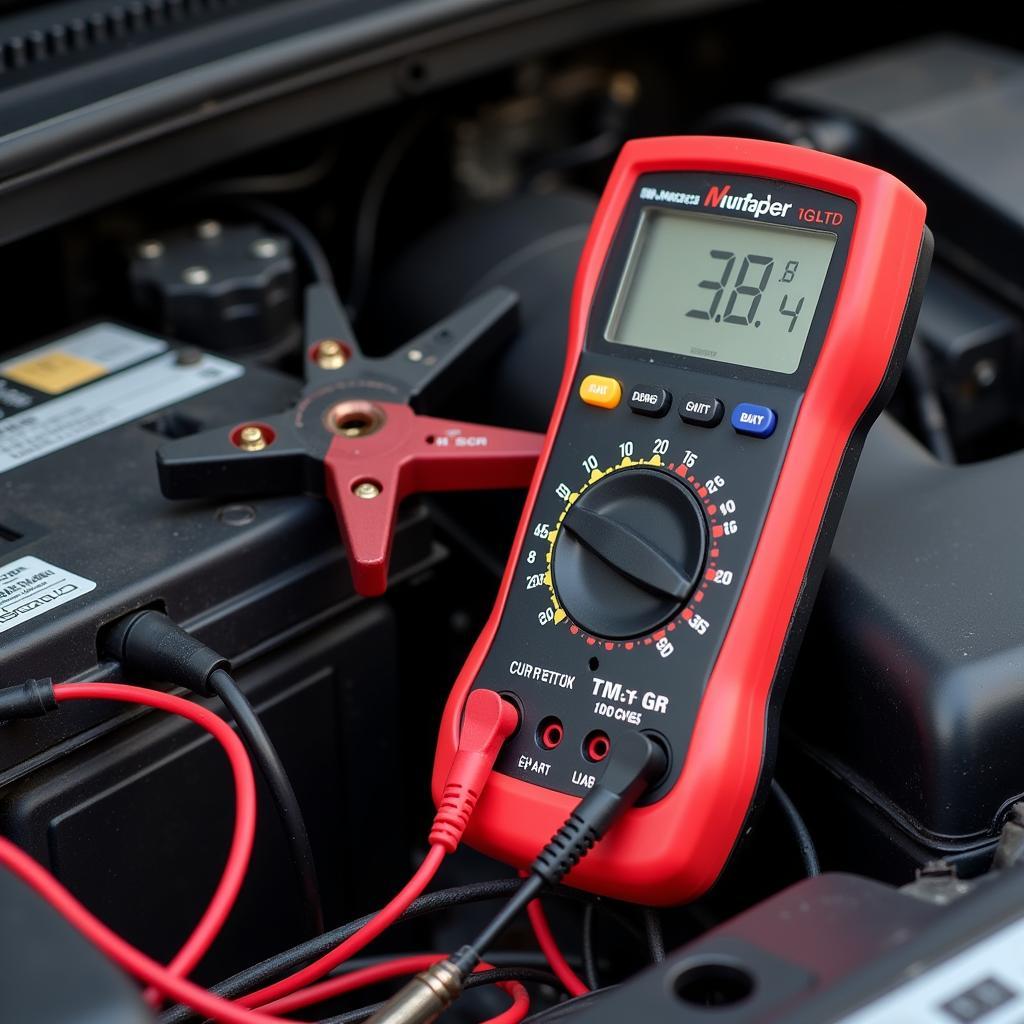A flashing red light on your dashboard, the dreaded “click” instead of a “vroom,” and a sinking feeling in your stomach – it sounds like your 2012 Dodge Caravan’s anti-theft system has decided to act up. This security feature, while essential for deterring theft, can sometimes cause a real headache for vehicle owners. But don’t worry, we’re here to help you get back on the road.
Understanding the Problem
The anti-theft system on your Dodge Caravan is designed to prevent unauthorized access to your vehicle. When it senses something amiss, like an incorrect key being used, it can engage the immobilizer, preventing the engine from starting. This is usually triggered by a problem with the key fob’s battery or signal, a malfunctioning ignition switch, or even a weak car battery.
Identifying the Culprit
There are a few telltale signs that the anti-theft system is the culprit behind your starting troubles:
- Flashing Security Light: A red light, often shaped like a car with a padlock, will blink on the dashboard.
- No Crank Condition: When you turn the key, nothing happens. The engine doesn’t crank, and the starter motor remains silent.
- Clicking Sounds: You may hear clicking sounds coming from the steering column or dashboard, indicating the immobilizer is engaged.
Tools for the Job
Fortunately, resetting the anti-theft lock on your 2012 Dodge Caravan can often be accomplished without any fancy tools. In many cases, all you need is:
- Your Dodge Caravan Key Fob: Make sure you have a functional key fob with fresh batteries handy.
- Patience: Sometimes, these systems require a bit of time and patience to reset.
Resetting the Anti-theft Lock
Here’s a step-by-step guide to try and reset your Dodge Caravan’s anti-theft system:
- Check Your Key Fob: Replace the batteries in your key fob, even if they seem relatively new. A weak signal can sometimes trigger the immobilizer.
- The Lock-Unlock Technique: Use your key fob to lock and then unlock the driver’s side door manually. Sometimes, this simple action can reset the system.
- The Key Cycle Method: Insert your key into the ignition and turn it to the “ON” position (without starting the engine) for 10-15 seconds. Then, turn the key back to the “OFF” position and repeat this cycle 2-3 times. This can help re-synchronize the key and the immobilizer.
- Disconnect the Battery: As a last resort, you can try disconnecting the negative terminal of your car battery for about 15 minutes. This can sometimes reset the vehicle’s electrical system, including the anti-theft module. Important Note: Disconnecting the battery may erase radio presets and other customized settings.
Frequently Asked Questions
Can a low car battery cause anti-theft problems?
Yes, a weak or dying car battery can cause voltage fluctuations that confuse the anti-theft system, leading to false alarms or immobilizer engagement.
Do I need special equipment to reset my Dodge Caravan’s anti-theft system?
In many cases, no. Simple procedures using your key fob and battery disconnection often suffice. However, for more complex issues, a professional diagnostic tool may be necessary.
What if these steps don’t work?
If the problem persists, it’s best to seek professional help. Automotive locksmiths or dealerships have advanced diagnostic tools that can pinpoint and resolve more complex issues with the anti-theft system.
Need Further Assistance?
Experiencing difficulties with your 2012 Dodge Caravan’s anti-theft system? CARDIAGTECH can help! We offer a range of services, including remote diagnostics, programming, and software installations for resolving car electronic issues. Learn more about Cardiagtech’s services.
Remember, a properly functioning anti-theft system is crucial for your vehicle’s security. If you’re unsure about any procedure or if the issue persists, it’s always best to consult with a qualified automotive professional or reach out to Cardiagtech for expert advice and assistance.


